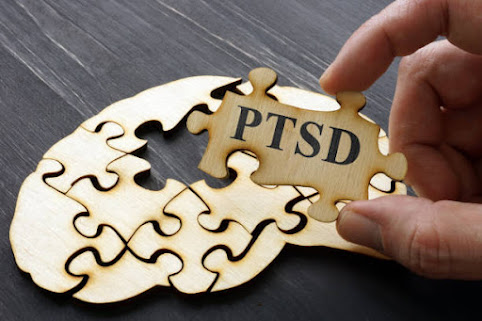Post Traumatic Stress Disorder Treatment and Lifestyle: How to Improve Your Diet, Exercise, Sleep, and Stress Management
Post Traumatic Stress Disorder is a mental health condition that can develop after exposure to a traumatic event. While therapy and medication are commonly prescribed treatments, the role of lifestyle factors in managing PTSD is gaining recognition. Adopting a holistic approach that includes a focus on diet, exercise, sleep, and stress management can significantly contribute to the overall well-being of individuals dealing with PTSD.
Diet and Nutrition:
Eating a balanced and nutritious diet is crucial for mental health. Certain foods have been linked to mood regulation and can positively impact those with PTSD. Omega-3 fatty acids, found in fish, flaxseeds, and walnuts, have been associated with reduced symptoms of depression and anxiety. Antioxidant-rich foods, such as fruits and vegetables, can also play a role in promoting overall mental well-being. Additionally, limiting the intake of caffeine and alcohol is advised, as they can exacerbate anxiety and sleep disturbances.
Exercise and Physical Activity:
Regular physical activity has been proven to have a positive impact on mental health. Exercise helps in the release of endorphins, the body's natural mood lifters. Engaging in activities like walking, jogging, yoga, or team sports can be beneficial for individuals with PTSD. Exercise not only improves mood but also contributes to better sleep, reduced anxiety, and increased overall resilience to stress. Creating a consistent and enjoyable exercise routine can be a valuable component of PTSD treatment.
Quality Sleep:
Sleep disturbances are common among individuals with PTSD. Establishing healthy sleep habits is crucial for overall well-being. Creating a bedtime routine, maintaining a consistent sleep schedule, and optimizing the sleep environment are essential steps. Avoiding stimulants close to bedtime, such as caffeine and electronic devices, can contribute to better sleep quality. In cases of severe sleep disturbances, consulting with a healthcare professional for appropriate interventions, such as cognitive-behavioral therapy for insomnia, may be beneficial.
Stress Management Techniques:
Effective stress management is key for individuals with PTSD. Mindfulness practices, meditation, and deep breathing exercises can help regulate the stress response. Learning to identify and challenge negative thought patterns through cognitive-behavioral therapy (CBT) can be particularly effective. Additionally, engaging in activities that bring joy and relaxation, such as hobbies or spending time in nature, can play a significant role in reducing stress levels. Building a support network and seeking professional help when needed are important aspects of managing stress in the context of PTSD.
Conclusion
Post Traumatic Stress Disorder is a complex condition that requires a comprehensive approach to treatment. While therapy and medication remain integral components, the role of lifestyle factors should not be underestimated. Adopting a holistic approach that includes attention to diet, exercise, sleep, and stress management can contribute to improved mental health outcomes for individuals with PTSD.
By making positive changes in these lifestyle areas, individuals can enhance their overall well-being, reduce symptoms, and build resilience in the face of trauma. It's important for those with PTSD to work collaboratively with healthcare professionals to develop a personalized treatment plan that addresses both psychological and lifestyle factors.
In conclusion, the integration of healthy habits into daily life can serve as a powerful complement to traditional PTSD treatments. Empowering individuals to take an active role in their well-being by focusing on diet, exercise, sleep, and stress management not only enhances their mental health but also promotes a sense of control and empowerment in the journey towards recovery.





Comments
Post a Comment